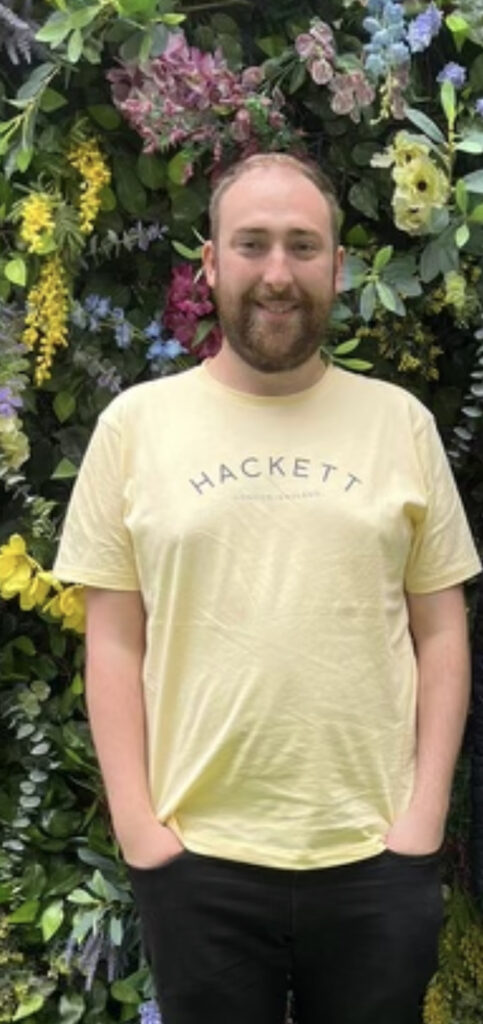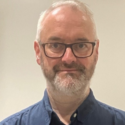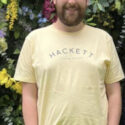Obituary: Cameron James Tailford, 10 October 1991 – 3 August 2022
Article DOI: https://dx.doi.org/10.15180/221813
Obituary: Cameron James Tailford
https://dx.doi.org/10.15180/221813/001We first met Cameron Tailford in 2017 when he came for an interview for one of the Science Museum Group’s AHRC-funded collaborative doctorates. His core qualities of warm good humour, openness and understated natural intellect shone through on that occasion as so often. It is a tragedy that early death at the age of 30 from an undiagnosed heart complaint should have robbed the world of scholarship and museums of such a promising practitioner and such a likeable person.
Unlike many of our doctoral students, he was a graduate of the post-1992 universities, and the first in his family to have attended university. After his 2016 First-Class Honours degree in English and History from Leeds Beckett University, he went on in 2017 to complete an MA in Modern History in the School of History at the University of Leeds with a dissertation on Victorian reformatory schools in relation to class and gender. His 2021 collaborative doctorate between the University of Leeds School of Philosophy, Religion and History of Science and the Science Museum Group was entitled ‘Women and the Wireless: British Women’s Developing Roles and Representations in the Interwar Electronics Industry’ and it was co-supervised by Graeme Gooday and Alison Fell (now Dean at the University of Liverpool) at the University and Annie Jamieson and Jan Shearsmith for the Science Museum Group. As the title indicates, this was a strikingly original piece of work, which explored the key role played by British women workers in the new electronics industry of the 1920s and 1930s, with an emphasis on how they were represented, especially in trade publications. Cameron had hoped to publish something from this thesis, and it is still hoped that it will be possible to make a posthumous publication from at least one of his chapters; certainly, the work deserves to be much better known.
But before he turned to the humanities for his later education, he had pursued another personal enthusiasm via his 2010 OCR National Extended Diploma in Media, Arts and Games Design close to home at Huddersfield New College. It may well have been this strong interest in the digital sphere that motivated him to apply for the project on which he was engaged at the time of his death. Cameron was appointed to the role of Research Fellow in the Congruence Engine Energy theme late in 2021, starting in January 2022. He was a popular member of the research team for this project, which is looking into new digital techniques for linking collections. He was a core member of the group looking into energy histories, where he was deep in preparing major strands of investigation into coal mining and electricity-generating history, working with partners at the Discovery Museum, Newcastle, and the University of Leeds. He was also closely collaborating with the team working on Bradford textiles history, exploring an archive of historical portrait photographs. He co-wrote a blogpost with Kylea Little (Discovery Museum) and Graeme Gooday (University of Leeds) on the Energy theme, and he was active in setting up links with project museums, looking initially at Parsons turbines and coal-mining heritage, as the foci prioritised by the Discovery Museum partner in Newcastle upon Tyne.
During this Masters studies, Cameron had been active as a volunteer at SMG’s National Science and Media Museum (NSMM) in Bradford, where he assisted in conservation and the updating of the Museum’s database of objects. He also held an internship at the University of Leeds Special Collections Archive related to digitisation and the transcription of its materials. After his doctorate, in 2021 Cameron was appointed Collections Care Assistant on the Google Daily Herald Archive project, which digitised 75,000 images for online access. Colleagues at NSMM recall Cameron very fondly, and all remember with affection his good humour, friendliness and enthusiasm. They say that he was always keen to learn and would with pleasure get stuck into anything asked of him. Even when the task was repetitive and time-consuming – scanning and uploading hundreds of condition reports, for example – Cameron still showed his typical enthusiasm and humour.
The timescale of his doctoral studies was significantly affected first by the illness and then death (from cancer) in 2019 of his mother, and thereafter being a carer for his father, latterly during the Covid-19 pandemic. Cameron is survived by his father Paul and his brother Jordan.





